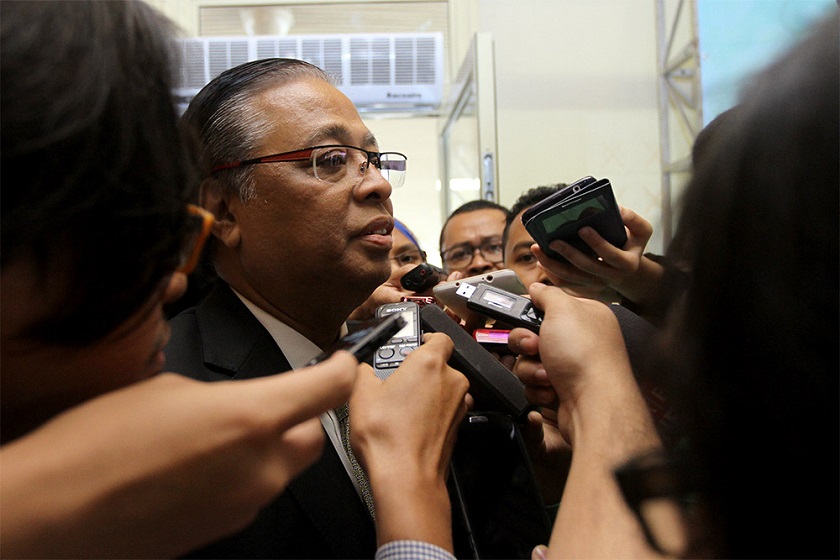KUALA LUMPUR , Feb 8— The ethnic Chinese community has been here from as early as the 15th century, with the Peranakan community being one of the oldest ethnic groups in Malaysia.
However, more than 50 years after the formation of Malaysia, the second largest ethnic group here is still considered as “The Other”, compared to the Malays and Bumiputera.
And in times of political and economic uncertainties, it is very convenient to bring up “The Other” as a rallying point to unite the majority population.
This is a common occurrence in history.
What is sad is in Malaysia, “The Other” are inevitably a certain part of its own citizens. Even after three generations, the ethnic Chinese are still regarded as strangers and outsiders in their own country.
Year in year out, the spectre of the bloody May 13 racial riots would be brought up. Chinese political parties would always be painted as instigators — allegedly out to topple the Malay status quo.
But worst of all, the myth that the ethnic Chinese are dominating the country’s economy, to the detriment and hardship of the Malays, has persisted and is used as a scapegoat when times are tough. Even when the tough times are ultimately the responsibility of the status quo that holds the reins of the country.
This double standard towards Malaysia’s minorities has not gone unnoticed by international observers. Last week, renowned Muslim academic Dr Tariq Ramadan advised Malaysian Muslims to look at their own treatment of minorities before accusing the West of discrimination.
Never once did Ramadan mention the ethnic Chinese, but some incensed Malay-Muslims shot back at him, citing the numbers of ethnic Chinese millionaires in the country as “proof” that minorities are not “second-class citizens.”
This alienation achieved new heights on Feb 4 when it was officially declared that racism towards the ethnic Chinese in the form of racial boycott was not only condoned, but also did not deserve punishment.
So what is the message here? It would be entirely reasonable to come to this conclusion: “It is fine to spout racist drivel, but as long as you belong to the elites in the status quo, then you will be defended by the highest authority in the country. It is okay.”
And many have taken it as a rallying call to continue attacks towards the ethnic Chinese.

A Facebook page called “Boikot Barangan Cina DAP ORI” has received traction, accusing Chinese firms of being linked to opposition party DAP.
The page listed down the names of products and brands allegedly owned by the Chinese, and therefore must be boycotted. As an alternative, the page favoured “Malay brands”, many of which are owned by tycoon Tan Sri Syed Mokhtar Al-Bukhary.
Vitriol against the ethnic Chinese has also surfaced in social media, and the
Inspector-General of Police’s (IGP) plea for Malaysians to stop playing up the issue of boycott unsurprisingly fell on deaf ears.
After all, didn’t the police dispatch nearly 20 officers to detain civil liberties lawyer Eric Paulsen for a tweet admonishing federal Islamic authorities for its allegedly “extremist” Friday sermons?
Now, compare that to how the police has delayed the questioning of a minister who first called for this racial boycott. By the time the stipulated grace period is over, the public would probably have forgotten all about it, and the questioning can easily be swept under the carpet.
Another dangerous impact of the Feb 4 pardon has also been the turning of the tables towards the victims. It had suggested that the public had merely misread a general remark to be a racist one. Which we obviously did not.
It was magical how a remark meant for “all Chinese traders” morphed to “some Chinese traders” and in the end was canonised as “some Malaysian traders” instead.
As a consequence, we now have supporters of the minister accusing those who were hurt in the first place as being “racist” instead.
Islamist group Ikatan Muslimin Malaysia (Isma) has continued to accuse Chinese-majority parties DAP and MCA as the real racists for allegedly misunderstanding the original remark. Of course, those who read the original remark knew that nobody in DAP and MCA could have misunderstood it, being as obvious as it was.
Now, the Pakatan Rakyat (PR) parties are the ones being attacked for not supporting the minister. The opposition parties are accused of having no desire to call for the reduction of price of goods, when they have accused the minister of his racism.
They have conveniently forgotten all the times PR and student movements held public rallies protesting the high cost of living, or their many statements on the issue. Which in the end were ignored by the ruling coalition when it did not play into their political goals.
But we Malaysians, we must not forget. We must not forget the impunity of these people when it comes to racism and alienating the minorities among us.
We must not forget those who went scot-free after calling for a racial boycott. And even more important, we must not forget those who pardoned the boycott and declared it fine and dandy.
When the time comes to decide who should run this multi-ethnic country, we must not forget.
For now, it is time to resist this open season of racism, and stand strong beside our ethnic Chinese friends until this racial storm passes.
* This is the personal opinion of the writers or organisation and does not necessarily represent the views of Malay Mail Online.






















